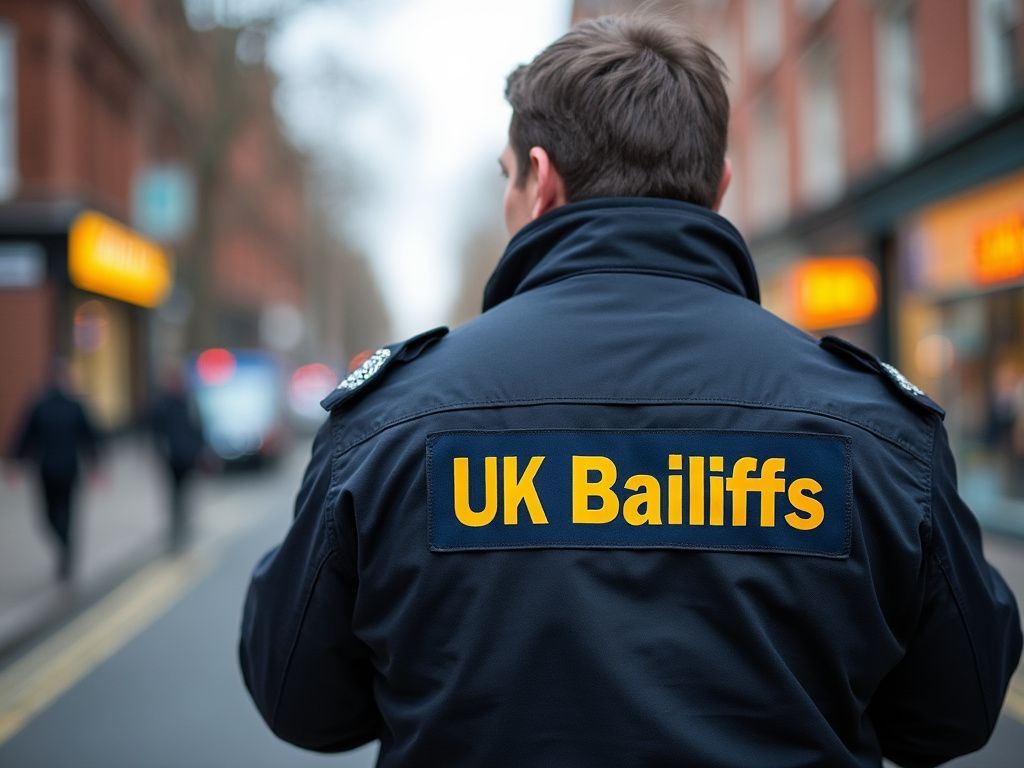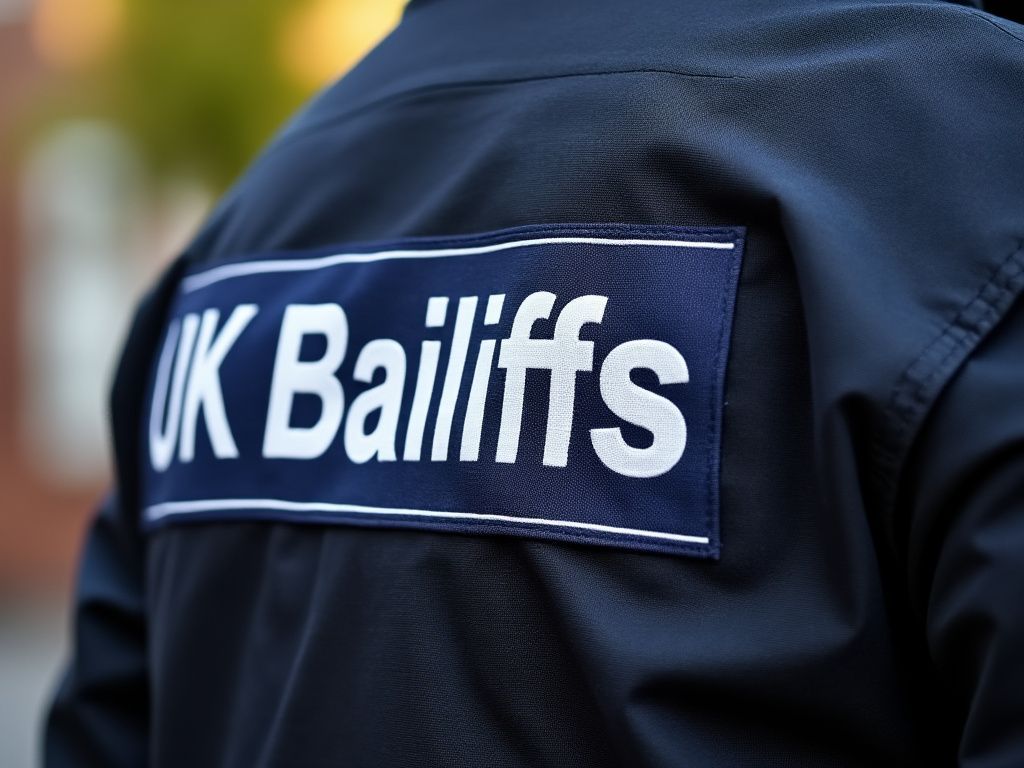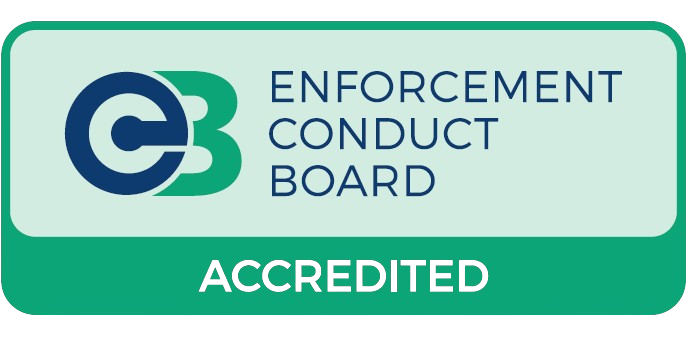Traveller, Trespasser & Rough Sleeper Evictions by Bailiffs
Our certificated enforcement agents attend sites across England and Wales to serve notice and remove illegal occupants — including travellers, trespassers, and rough sleepers — restoring possession of your land or property.

If your land is occupied by travellers, trespassers, or rough sleepers and they are refusing to leave, you can take swift, legal action. You don’t always need to go to court. Here’s how.
- Common Law – Fastest option, no court order needed
- CPR Part 55 Writ – For persistent or building occupations
- Police Powers (S61) – When there is disruption, threats or fly-tipping
- 24/7 response team across England & Wales
- Fully certificated enforcement agents
- Clean-up, lock changes & site security available
- Your authority as landowner or agent
- Site address and brief overview of what's happening
- Photos or location details (if available)
When responding to unauthorised encampments, our experienced bailiffs prioritise strategy, communication, and respect to achieve peaceful resolutions. Traveller evictions don’t always require overwhelming force — just the right approach.
While we have the capability to deploy large enforcement teams with tow trucks and site security, in most cases, two skilled agents are all it takes. Our long-standing relationships with the travelling community allow us to resolve incidents quickly and peacefully — without unnecessary escalation or costs.
Practical, cost-effective outcomes: Our calm and strategic approach reduces disruption, protects your land, and maintains dignity for all involved.

“With years of experience in traveller evictions, rough sleeper evictions, and trespasser evictions, UK Bailiffs has successfully reclaimed hundreds of sites across England and Wales — working closely with landowners, property managers, and local authorities to deliver swift, lawful outcomes.”
UK Bailiffs offers a fast, legally compliant service for removing unauthorised encampments. Our agents work professionally to resolve situations with minimal disruption.
- Initial Consultation: Call us to discuss the issue, get guidance, and confirm fees.
- Online Form: Complete a short instruction form — we prepare and issue legal documents.
- Agent Deployment: Enforcement agents are dispatched, often within 2 hours.
- Notice & Risk Assessment: Notices are served, and agents assess the site on arrival.
- Strategy Options:
- Peaceful Eviction: Reasonable deadline set for voluntary leave.
- Extended Time: Offered if trespassers cooperate.
- Escalation: Add agents, dog units, or recovery vehicles.
- Full Removal: Complete site clearance as a last resort.
- Final Enforcement: Action taken in line with the chosen approach, always legally compliant.
- Serve Only: We serve legal notice and carry out an initial assessment.
- Serve & Observe: We remain on-site to monitor and encourage compliance.
- Serve & Return: We return if the deadline expires without compliance.
- Same Day Eviction: Immediate notice and enforcement action in one visit.

Landowners in England and Wales — whether private or local authority — have the right to remove trespassers using either Common Law or the Court process.
Halsbury’s Laws of England
In 1907, Stanley Bond commissioned Lord Chancellor Hardinge Giffard to produce the legal reference now known as Halsbury’s Laws of England.
“If a trespasser peaceably enters or is on land, the person who is in or entitled to possession may request them to leave, and if they refuse, remove them using no more force than is reasonably necessary.”
This principle still applies today.
The Role of Enforcement Agents
Enforcement Agents (formerly bailiffs) may lawfully attend land without notice and remove trespassers immediately — without a court order — using reasonable force.
Important Exception: If agents cannot gain peaceful entry (e.g. locked gates), eviction under Common Law is not permitted.
- Agents attend and serve notice
- Conduct a site-specific risk assessment
- Provide reasonable time to vacate
- Remove people/vehicles using minimum force if needed
- Notice: Can be immediate or delayed
- Force: Must be proportionate
- Best Practice: Avoid night evictions with children present
Speed & Cost: No court needed, faster and cheaper resolution.
Trespassers may return — but this is rare with decisive enforcement.
Local Authority: Must assess Human Rights duties. If children are involved, liaise with social services.
Below is the total success rate for October 2023 - October 2024 based on 97 evictions
65%
Vacated on Service (24 hours)
33%
Evicted following Reattendance (48 hours)
1%
Evicted After 48 hours
99%
Total Success Rate (Excludes those who left before instruction was cancelled)
Instruction Form
Completing the form does not constitute a contract or acceptance of the instruction.
Where instructions relate to traveller, trespasser or unauthorised encampment matters, all instructions are subject to our Traveller & Trespasser Terms and Conditions.
What Happens Next?
Once submitted, we will email you for acceptance and then begin the process. We may also request further details as part of our due diligence procedures. If you have any questions in relation to the instructions, please email us at help@ukbailiffs.org.
Trespasser and Traveller Evictions – Frequently Asked Questions
What is a Common Law eviction?
This refers to the landowner’s legal right to regain possession of private land from unauthorised occupiers without the need for a court order, using lawful and proportionate measures under the tort of trespass.
Do I need a court order to remove trespassers?
No. A court order is not required for open private land. A possession order is generally only needed where access is secured, such as locked buildings or gated land requiring forced entry.
Who can carry out the eviction?
Eviction may be carried out by the landowner or by appointed Certificated Enforcement Agents. Using experienced professionals helps ensure safety, proportionality, and legal compliance.
What kind of force is permitted?
Only reasonable and proportionate force is permitted. This may include guiding individuals away from the land or removing vehicles, but never aggressive, intimidating, or damaging conduct.
How quickly can UK Bailiffs respond?
In most cases, enforcement teams can be deployed within approximately two hours of instruction, covering locations across England and Wales.
Is advance notice required?
Yes. Written notice is normally served between 2 and 24 hours in advance, depending on the circumstances. Notices are handed directly or clearly displayed on site.
Can I evict trespassers myself?
While lawful in principle, self-help eviction carries significant practical and legal risks. Instructing trained enforcement agents greatly reduces the risk of escalation or liability.
What if they refuse to leave?
Our agents escalate matters proportionately, which may include additional personnel, vehicle removal, or liaison with police to prevent a breach of the peace.
What laws apply to this process?
Enforcement is governed primarily by civil trespass law, the Criminal Justice and Public Order Act 1994, and relevant Human Rights Act considerations.
Will the police attend?
Police may attend to prevent a breach of the peace but do not normally assist with civil eviction unless criminal behaviour or obstruction occurs.
What if there are children on site?
Where children are present, we liaise with relevant safeguarding services and ensure all welfare considerations are properly managed and documented.
What is the risk of excessive force?
Excessive or aggressive force is unlawful and may lead to criminal or civil liability. Our agents are trained to use only the minimum force necessary.
How do you deter re-entry?
Rapid deployment and consistent follow-up significantly reduce re-entry risk. Once properly evicted, the vast majority of trespassers do not return.





